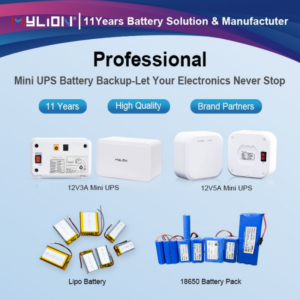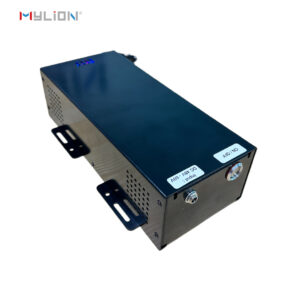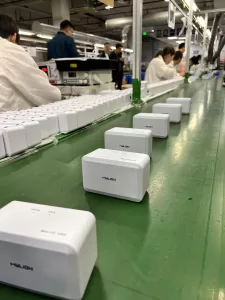With the cost and demand of electricity rising, consumers are now looking into alternative energy sources to meet their power requirements. In recent years, solar power is now a well-known renewable energy source due to its lower costs and increasing efficiency.
It uses solar energy through various methods of capturing the sun’s radiation. Solar power systems generate electricity through the use of the sun’s energy. A typical solar system is comprised consisting of a solar panel (which takes in sunlight) and inverters (which change DC power into AC), batteries (to store the additional generated energy), a grid box, the balance of the system (wires, nuts, wires.). The solar system is available in various sizes, including 1kW, 3kW and 5kW, 10kW and so on.

In general, solar power systems are classified into three kinds.
This kind of system for solar energy is by far the most popular one. A grid-connected or grid-tied solar system connected to grids, as its name implies, is a type of solar power system connected to the home and the conventional electricity grid for utility use. This kind of solar energy system doesn’t include any storage batteries.
The entire appliance immediately consumes the solar energy generated by solar panels. If your solar system produces more power than the home uses, the excess power is transferred at the expense of the utility company as part of the net-metering scheme. If the solar power system isn’t producing enough capacity, the remainder of the power needed by appliances is sourced from the utility grid.
This kind of system needs the use of a few wire boxes, panels, disconnects, as well as an inverter. Additionally, you must create an interconnection contract with your local utility provider.
Advantages:
1. The initial cost of acquiring a solar power system for your home could be expensive. Grid-connected systems are more affordable since they require less equipment than other kinds of solar panels for rooftops.
2. Low maintenance: The cost of operating grid-tied systems is meagre. Solar panels are covered by between 20 and 25 years guarantee.
3. Reliability: The grid-tied system is easy to use and has zero downtime (without the power).
4. Flexibility: You can consider designing your system using an alternative energy source and the utility source. This way, you can modify the system to suit your future needs.
Disadvantages:
The drawback to this kind the solar system’s power is once the sun sets and the sun is no longer shining, you will not be able to make use of any authority that solar panels generate. This is also the case if your electric grid is not functioning, your solar panels will turn off automatically, and you will be without power. This can certainly affect your everyday routine.
An off-grid solar energy system is, as the name implies, a solar power system that has energy storage that isn’t tied to the central grid of utilities. Solar panels are the sole power source in the off-grid solar energy system. The energy generated is either delivered to the appliances or stored by the battery to be used in the future.

The off-grid power system is excellent for remote rural areas or situations where alternative sources of power are not available or not practical. Off-grid solar power solutions can either be AC-based systems, in which case they incorporate an inverter that converts battery energy into AC power and then transmits them directly to an AC appliance, or DC-based systems that are less expensive since they don’t require an inverter and are only fed directly to DC appliances.
This system is more costly because it needs to be connected to an electric grid. This means that it requires greater solar power and more batteries.
Advantages
1. Independence 1. Independence: One of the significant advantages of this kind of solar energy system is that it doesn’t depend on a utility company. You don’t have to abide by the rules and regulations of the utility company.
2. No blackouts Another benefit is that your home will have power even if all the other houses are without power. This is crucial for those suffering from health issues that require refrigerated or electronic medications.
3. No electric bills because you produce your power; you’ll never pay utilities.
Disadvantages
1. Higher price at the beginning: If there isn’t an electricity connection to the utility provider, You will require an additional battery if there’s no sun. The addition of this backup source can increase the cost.
2. Limited solar energy storage If the weather turns cloudy or wet for a few days, you could run out of electricity stored.
3. energy efficiency is essential. It is necessary to be extremely cautious about your energy consumption, or else you might lack the power to your home.

A hybrid power source is an energy system that is solar powered with energy storage that’s like a grid-tied solar power source but includes an energy storage system typically as a battery backup. In recent years, this kind of solar energy system has become very popular, although it is more costly. When the solar energy output is higher than the demand, the extra solar energy is used to charge batteries and kept for later use. If production is lower than the electricity demand, energy stored in the battery can fill the gap.
A well-designed combination solar system gives the dual benefit of reducing your electric bills and giving you the convenience of having backup power during an outage. The hybrid system comprises an array of PV and a charge controller, an inverter and a battery bank and, in certain instances, an additional power source such as a wind turbine or gas generator.
Advantages
1. Energy storage system If the solar system generates excess energy, it could be stored within the batteries. Even if there’s no sunlight, you can still power your home. If there is an interruption in the power supply, the house will have the capacity for a long time.
2. Save money: Batteries can give you additional ways to save money since the energy storage system you have installed can ensure that you’re using its power rather than the grid’s power.
Disadvantages
1. cost: It is more since you must replace the batteries frequently. While the price of batteries has decreased in the past few years, they must be replaced at some point.
2, Expertise of the highest level 2. High-level Expertise: This type of solar system can be more intricate and requires an installer for solar with a more excellent knowledge of building and install. Therefore, ask your solar power provider if they will install this system.
These three kinds of solar systems can be used have advantages and drawbacks. Customers can pick the solar system which will meet their requirements for electricity.






